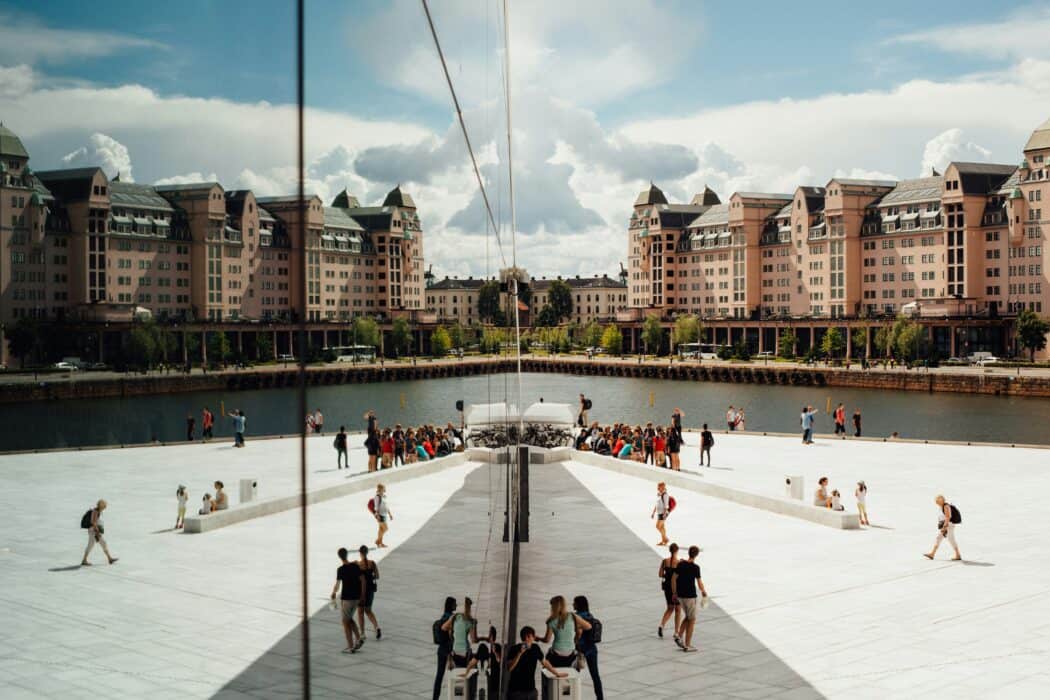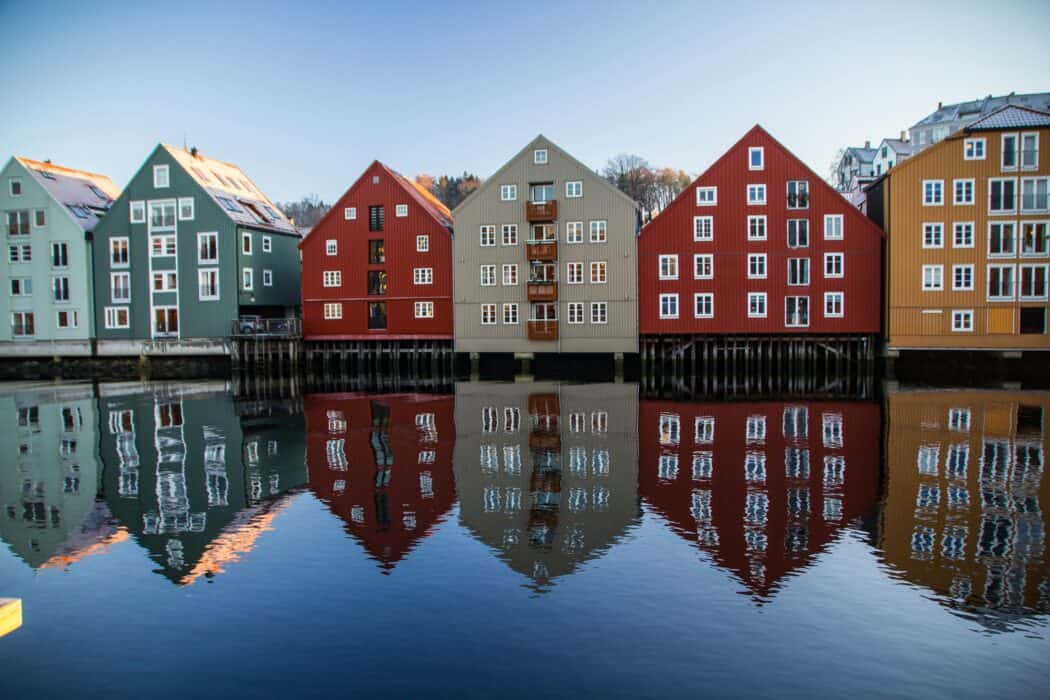What is the Average Wage in Norway
Average Wage in Norway
Disclaimer: This post may contain affiliate links, which means I may earn a small commission if you make a purchase at no additional cost to you. I only recommend products and services that I would use myself and all opinions expressed here are my own. You can read my full privacy policy here.
As of 2023, the average wage in Norway is approximately NOK 610,000 per year. This translates to around $57,000 to $60,000 USD annually, depending on the current exchange rate. This average wage reflects the higher standard of living and the strong economic conditions in Norway compared to other countries. However this average can vary across different industries and also across experience levels.
What I found found having spent some time in Norway while traveling the last few years is that its comprehensive social welfare system, as well as high tax rates help maintain a sound public infrastructure, such as excellent public transport. Norway, similar to other Scandinavian countries emphasis on work-life balance, and this is largely true even in high pressure jobs such as consulting and finance. For the locals while the cost of living, including expenses in cities like Oslo, can be high, the high average wage in Norway helps to offset these costs.
Why is the Average Wage in Norway higher than other countries?
The average salary in Norway is influenced by various factors, primarily –

1. Strong Economy and High Productivity
- Natural Resources: Norway has significant natural resources, particularly oil and gas, which contribute to a strong economy and high GDP per capita.
- High Productivity: Norwegian industries, including technology, maritime, and energy sectors, are highly productive, contributing to higher earnings.
2. Comprehensive Welfare System
- Social Benefits: Norway has a pretty extensive social welfare system. This includes healthcare, education, and unemployment benefits, which contribute to higher living standards and enable workers to demand higher salaries.
3. High Cost of Living
- Living Expenses: No matter how you look at it, the cost of living in Norway, including housing, food, and services, is high. To compensate for these expenses, wages are also higher.
- Consumer Prices: High consumer prices for goods and services ultimately higher incomes for Norwegian workers to maintain their purchasing power.
4. Strong Labor Unions
- Collective Bargaining: Labor unions in Norway are powerful and play a significant role in negotiating wages and working conditions, ensuring fair compensation for workers.
- Labor Rights: Strong labor rights and protections contribute to better wages and working conditions.
5. High Education and Skill Levels
- Education System: Norway has a high-quality education system that it prides in producing a skilled workforce, which can command higher wages. I was shocked to learn from my Norwegian friends on my travels that college education, including some phds are tuition free in Norway!
6. Government Policies
- Minimum Wage Regulations: You would be surprised to know that Norway does not have a national minimum wage. However various sectors have collective agreements (due to strong unions )that set minimum wages, contributing to overall higher wage levels.
7. Cultural and Societal Factors
- Work-Life Balance: There is a strong emphasis on work-life balance and quality of life, which includes fair wages for workers.
- Income Equality: Norway is known for its relatively low income inequality, with efforts to ensure fair wages across different sectors and job roles.
What does the high average wage in Norway mean for those planning to work in Norway
For those planning to work in Norway, it’s essential to consider several points regarding wages. The high cost of living, including expensive housing, food, and transportation, also means expected expenses.
When agreeing and negotiating wages, its important to keep in mind the high tax rates and how much income you then have left over to cover your expenses. This is especially the case when you are moving from a low tax country to Norway. You don’t want to be surprised by the final take home income in your paycheck!
On the plus side, Norway offers strong social welfare benefits, including healthcare, pensions, and family allowances, which are supported by high taxes.

Work-Life Balance
- Working Hours: The standard working week is around 37.5 hours, with strong labor laws ensuring work-life balance policies are in place.
- Vacation: Employees are entitled to a minimum of 25 days of paid vacation annually as part of their basic vacation days.
Job Market
Research the demand for your profession in Norway. Certain sectors like IT, engineering, healthcare, and oil and gas have higher demand and also relatively higher wages as a result.
Legal and Administrative Requirements for working in Norway
Work Permits: Non-EU/EEA citizens will need a work permit. Ensure you understand the visa and work permit requirements.
Registration: Upon arrival, you will need to register with the local authorities and obtain a Norwegian ID number.

What is the Minimum Average Monthly Salary Norway provides its workers?
As of 2024, minimum wages in Norway are not set on a country wide basis. Instead wages are determined for each industry through agreements negotiated by trade unions and employer organizations. These are the agreements set minimum wages for various industries such as construction, hospitality, and cleaning, where wages range from approximately NOK 175 to NOK 230 (about $17 to $22 USD) per hour.
What is the average annual salary in Norway – across its major cities in 2024
Average earnings per year and monthly income can vary significantly depending on sector and education – secondary education or upper secondary education such as University or College.
| City | Average Salary (NOK) | Average Salary (USD) |
| Oslo | 650,000 | 61,904 |
| Bergen | 600,000 | 57,142 |
| Stavanger | 620,000 | 59,047 |
| Trondheim | 590,000 | 56,190 |
| Tromsø | 570,000 | 54,285 |
In addition to salary, most employers provide a high standard of basic benefits to employees as part of their compensation package, especially in professional roles and both public and private sectors. As such, average monthly earnings generally provide a higher standard of living in Norway than many other developed countries.
What does the high average wage in Norway mean for visitors?
There are a few things to keep in mind what this means when visiting a place like Norway, with Norway living standards being some of the highest in the world. Having traveled to Norway a few times in the last few years. There are some things I have observed.
Accommodation prices are notably higher, with mid-range hotel rooms ranging from $150 to $250 per night.
Dining out is also expensive, with an inexpensive meal costing around $20 to $30 and a three-course meal for two at a mid-range restaurant costing about $100 to $150. Check out my post on eating out in Norway.
Grocery prices and everyday items are similarly higher, reflecting the overall high cost of living. To find out more about what grocery costs are like check out our detailed post here.
However, on the plus side – the high wages contribute to a high standard of services, and public infrastructure which benefits us tourists!
With efficient and reliable public transport, well-maintained public spaces, I have always been in awe of these small things that make me truly appreciate Norway.
Because of high wages, including in services industry, Tipping is not customary, as service charges are typically included as fixed % charges to most meals.
Further, economic stability and a lower crime rate statistics resulting from the high wages, create a safe environment for tourists. Pick pocketing can stil happen, however this is definitely rarer than in other parts of mainland Europe.
Are you heading to Norway?
Check out our other Norway Guides!
10 Day Winter Norway Itinerary: Northern Lights and Beyond
Tipping in Norway: Do You Tip In Norway as a Tourist?
Bergen Fish Market – Ultimate Guide to Visiting
Pust Sauna in Tromso – A Must Try Scandinavian Spa
Ultimate Guide to International Airports in Oslo Norway
Cost of Food in Norway: A Guide to Food and Drink Prices
Supermarket Prices in Norway in 2024 – A Comprehensive Guide
What is the Average Wage in Norway?
What is the National Animal of Norway + 11 Interesting Facts
Vidden Trail in Bergen – Hike Ulriken to Fløyen

